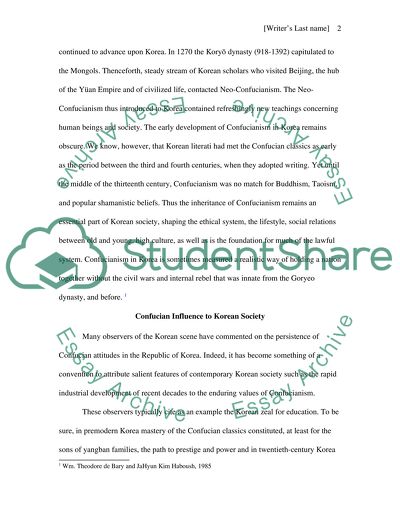Cite this document
(“Confucian influence to Korean society Essay Example | Topics and Well Written Essays - 2000 words”, n.d.)
Confucian influence to Korean society Essay Example | Topics and Well Written Essays - 2000 words. Retrieved from https://studentshare.org/sociology/1530990-confucian-influence-to-korean-society
Confucian influence to Korean society Essay Example | Topics and Well Written Essays - 2000 words. Retrieved from https://studentshare.org/sociology/1530990-confucian-influence-to-korean-society
(Confucian Influence to Korean Society Essay Example | Topics and Well Written Essays - 2000 Words)
Confucian Influence to Korean Society Essay Example | Topics and Well Written Essays - 2000 Words. https://studentshare.org/sociology/1530990-confucian-influence-to-korean-society.
Confucian Influence to Korean Society Essay Example | Topics and Well Written Essays - 2000 Words. https://studentshare.org/sociology/1530990-confucian-influence-to-korean-society.
“Confucian Influence to Korean Society Essay Example | Topics and Well Written Essays - 2000 Words”, n.d. https://studentshare.org/sociology/1530990-confucian-influence-to-korean-society.


